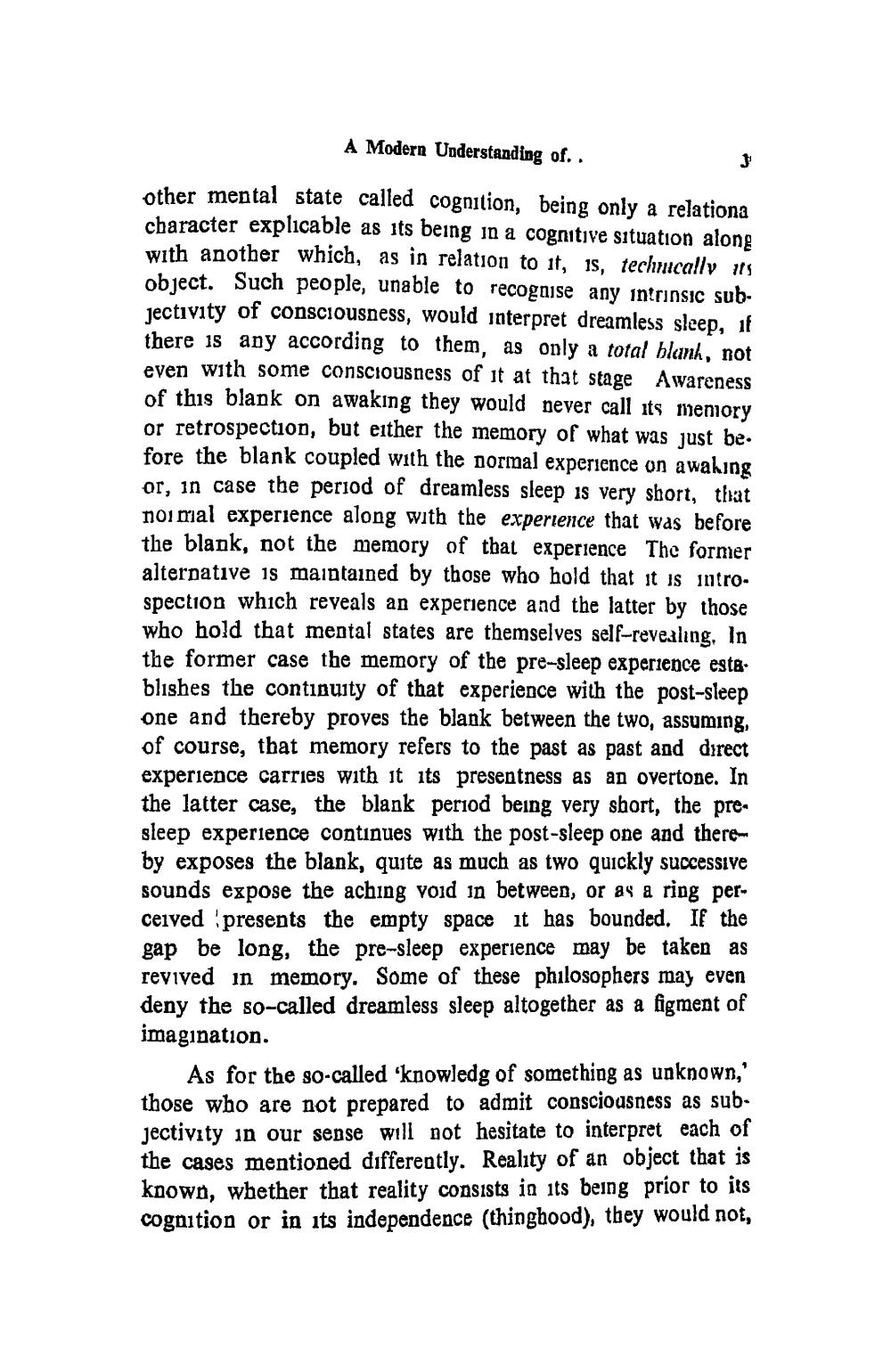________________
A Modern Understanding of..
other mental state called cognition, being only a relationa character explicable as its being in a cognitive situation along with another which, as in relation to it, 15, technically its object. Such people, unable to recognise any intrinsic subjectivity of consciousness, would interpret dreamless sleep, if there is any according to them, as only a total blank, not even with some consciousness of it at that stage Awareness of this blank on awaking they would never call its memory or retrospection, but either the memory of what was just be. fore the blank coupled with the normal experience on awaking or, in case the period of dreamless sleep is very short, that noi mal experience along with the experience that was before the blank, not the memory of that experience The former alternative is maintained by those who hold that it is introspection which reveals an experience and the latter by those who hold that mental states are themselves self-revealing, In the former case the memory of the pre-sleep experience esta. blishes the continuity of that experience with the post-sleep one and thereby proves the blank between the two, assuming, of course, that memory refers to the past as past and direct experience carries with it its presentness as an overtone. In the latter case, the blank period being very short, the presleep experience continues with the post-sleep one and thereby exposes the blank, quite as much as two quickly successive sounds expose the aching void in between, or as a ring perceived presents the empty space it has bounded. If the gap be long, the pre-sleep experience may be taken as revived in memory. Some of these philosophers may even deny the so-called dreamless sleep altogether as a figment of imagination.
J
As for the so-called 'knowledg of something as unknown,' those who are not prepared to admit consciousness as subjectivity in our sense will not hesitate to interpret each of the cases mentioned differently. Reality of an object that is known, whether that reality consists in its being prior to its cognition or in its independence (thinghood), they would not,




